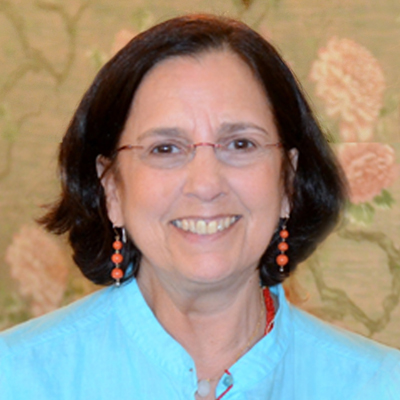Feeling Less Alone: Joan’s Story
She was new to the area, recently arrived from New York with her husband who’d taken a new job in the Lehigh Valley. And she was searching for things to latch onto, things to which she could commit now that their daughter was older and she had more time.
The conversation over lunch that Joan Fishman had with a new acquaintance about the Cancer Support Community intrigued her. And when the acquaintance said, “Everyone knows someone with cancer. Everyone is affected,” the deal was sealed.
And so, Joan began her relationship with the Cancer Support Community. First, she volunteered at Wings of Hope, at which we honor and remember those affected by cancer. Then, she became a member of the board.
And she was hooked, irretrievably and inextricably.
For she not only serves as vice-president of the board, but is one of three co-chairs of Boutique at the Rink, the massive five-day sale, each June, of gently used items which generates significant funds for, among others, the Cancer Support Community.
From the moment she stepped into the Vollrath House, the organization’s headquarters, Joan knew it was right for her. “The staff’s devotion to the organization, the volunteers’ commitment, and the board’s continued involvement really impacted me,” she smiles,
But there was more, for the Cancer Support Community’s mission resonated clearly: long ago, her aunt had had breast cancer, and “and my family panicked its way through. We had so many options and so many opinions from people who didn’t know anything about cancer.” Joan adjusts her black-framed glasses. “Everyone was trying to be helpful, and ultimately, no one was helpful to her or each other.”
In fact, it is the absence of a Cancer Support Community that drove Joan’s decision to become deeply involved. “My mother did not have cancer, but she was ill for years from the after-effects of rheumatic fever. I was a teen, and I wish there’d been a place for me to go to get unbiased information and be with people who understood my experience. We all—me, my brother, my father–would have felt less alone.
“The Cancer Support Community is a model for disease management,” she concludes.
She saw a contrast in the way her two friends—one from work and one from college—were able to handle their cancer diagnoses. “My friend from work felt like a specimen at the hospital. That’s not right to feel that way. But my college friend felt fabulous the whole time with encouragement from her doctors and nurses.”
Joan fingers her necklace. “That’s the right way to feel. It’s the reason I am so involved here.“


